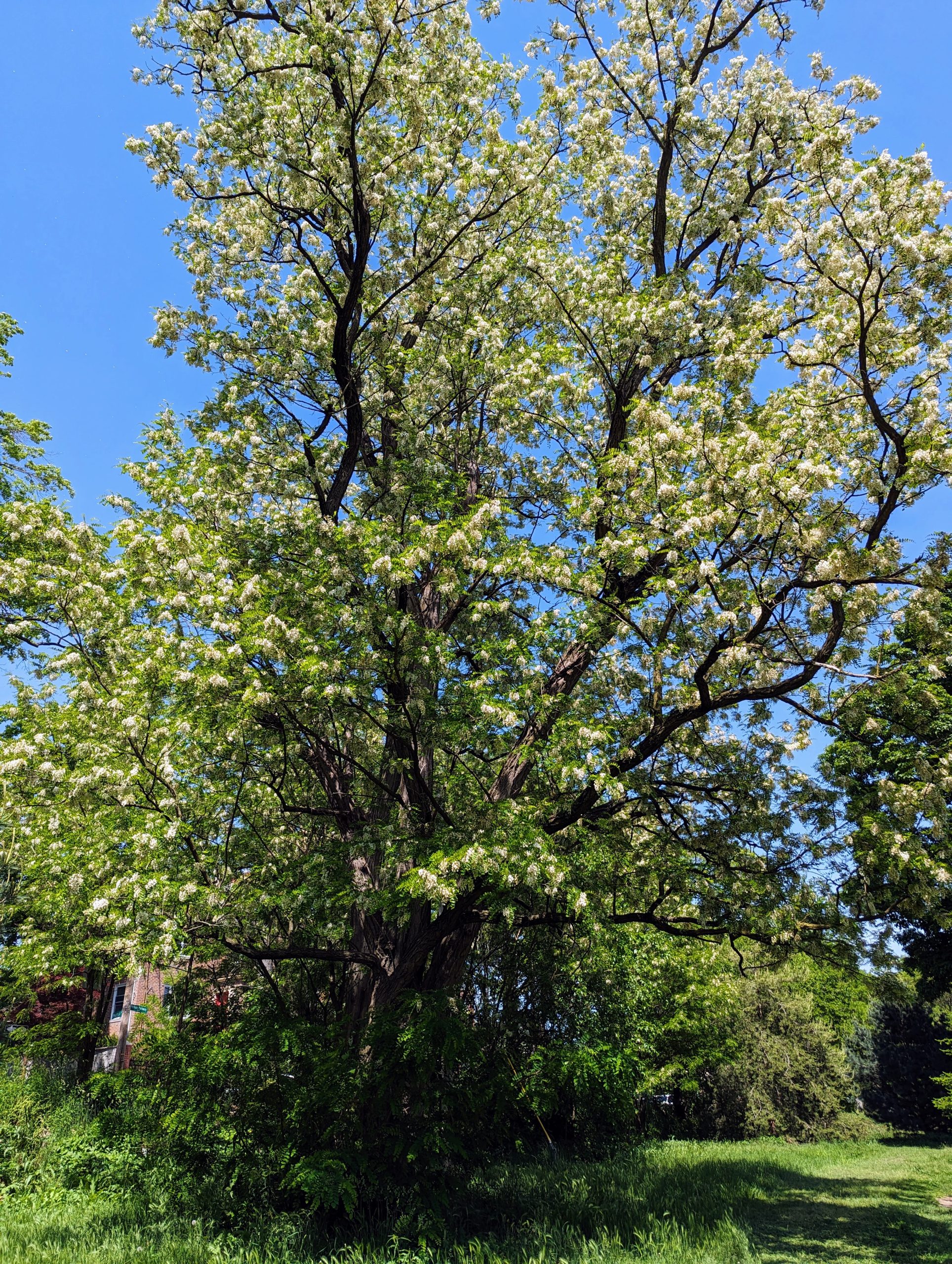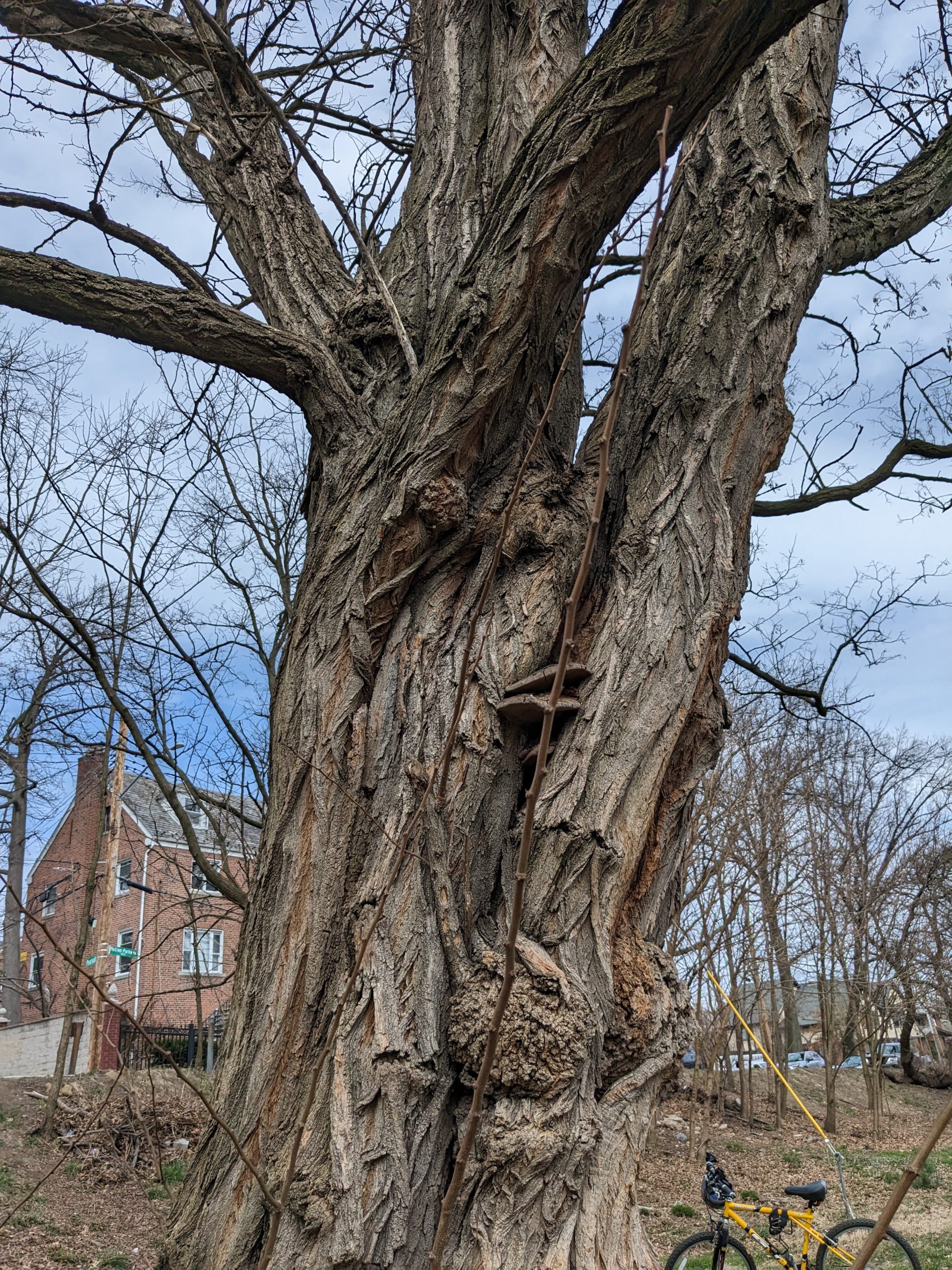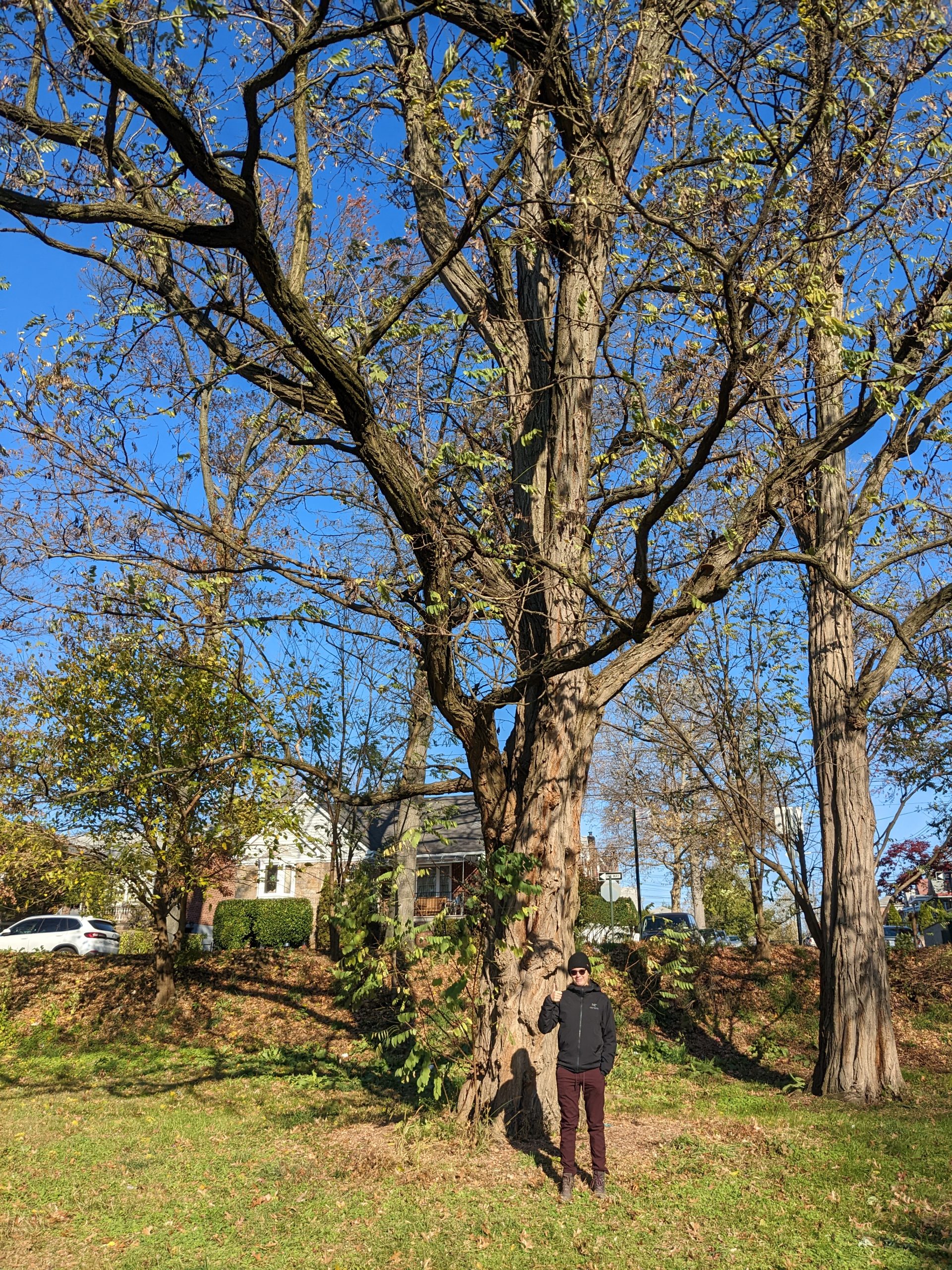Black Locust
$5.00 – $9.00Price range: $5.00 through $9.00
Black Locust (Robinia pseudoacacia): A fast-growing, nitrogen-fixing tree valued for its durable wood, fragrant blooms, and role in agroforestry systems. Ideal for firewood, erosion control, and supporting pollinators.
Description
The Black Locust tree is a resilient and multi-purpose species native to North America, known for its rapid growth, hardiness, and numerous ecological and practical benefits. Its adaptability makes it a popular choice for permaculture, landscaping, and sustainable agriculture.
The parent tree is from a beautiful Black Locust tree I’ve loved for years on Pelham Parkway. It was the very first tree I ever identified, marking the start of my journey into the world of trees. When this tree blooms, walking beneath it is an unforgettable experience—its cascading white flowers release a fragrance so rich and sweet, it fills the air with an almost magical scent.
Key Benefits:
- Nitrogen Fixing: Like other legumes, Black Locust forms symbiotic relationships with nitrogen-fixing bacteria, enriching the soil and benefiting nearby plants. This makes it an excellent choice for food forests and degraded land restoration.
- Durable Wood: Black Locust wood is among the densest and most rot-resistant hardwoods in North America. It is ideal for outdoor use, including fence posts, decking, and furniture, often outlasting treated lumber without chemical preservatives.
- High-Quality Firewood: With one of the highest BTU ratings among hardwoods, Black Locust burns hot and long, making it perfect for wood stoves and heating. It also seasons quickly compared to other dense hardwoods.
- Erosion Control: The tree’s deep and fibrous root system helps stabilize soil on slopes and reduce erosion, providing environmental benefits in both rural and urban landscapes.
- Pollinator-Friendly: The fragrant white flowers bloom in late spring, attracting bees and other pollinators. Black Locust flowers are also a source of high-quality honey, prized for its mild flavor.
Additional Qualities:
- Coppicing Ability: Tolerates regular cutting, promoting dense regrowth that is useful for firewood, fodder, and living fences.
- Drought and Poor Soil Tolerance: Thrives in challenging conditions, including poor, sandy, or rocky soils, and is often used in reclamation projects.
- Medicinal Uses: Historically, parts of the Black Locust tree have been used in traditional medicine, though caution is needed as some parts of the plant are toxic if ingested.
- Shade and Windbreaks: Its dense foliage offers shade and can serve as a natural windbreak, contributing to microclimate management in agroforestry designs.
Considerations:
Black Locust trees produce sharp, robust thorns that pose hazards to people, pets, and equipment, as well as creating dangerous debris when they drop to the ground. The thorns remain sharp long after falling, making cleanup difficult and potentially hazardous. Additionally, Black Locust trees are vigorous growers with a tendency to send up aggressive root suckers far from the original tree, especially when cut or damaged. These root sprouts can make removal challenging, as even small root fragments left in the soil can regrow. Proper site selection and diligent management are essential to control thorn litter and prevent unwanted spreading.
Black Locust is a powerhouse of a tree, offering solutions for timber, firewood, soil improvement, and biodiversity support. Its versatility and resilience make it an excellent choice for sustainable gardening and ecological restoration projects.
Additional information
| size | 2-year topped to 4' max, 2-year small |
|---|---|
| Type | Nitrogen Fixers |


